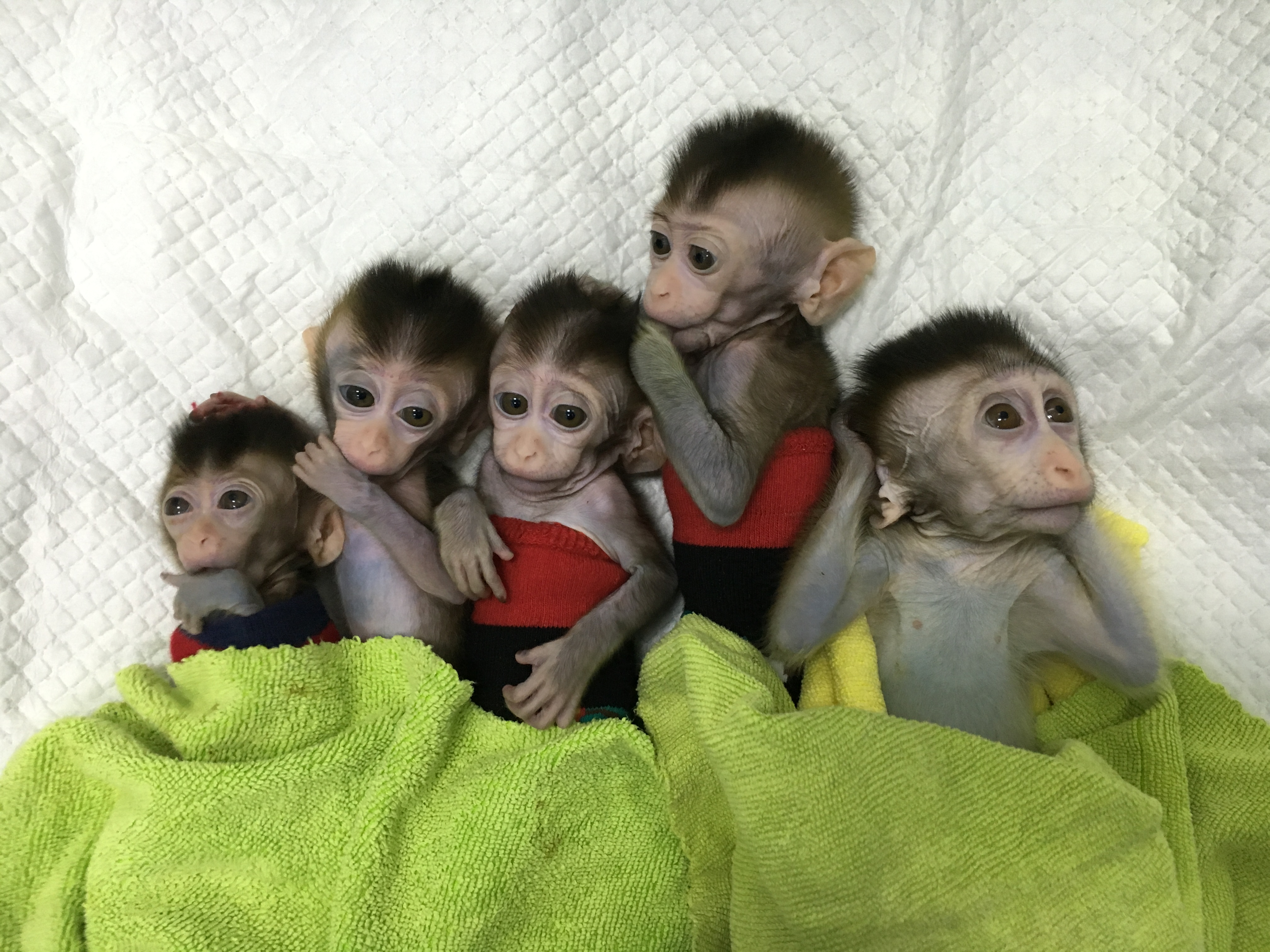Researchers from the CAS Center for Excellence in Brain Science and Intelligence Technology, the Institute of Neuroscience of CAS and the Shanghai Research Center for Brain Science and Brain-inspired Intelligence cloned five macaque monkeys from the skin fibroblasts of a gene-edited BMAL1-deficient monkey using somatic cell nucleus transfer (SCNT).
The BMAL1-deficient monkeys exhibited circadian disruption, sleep deprivation, anxiety, depression and schizophrenia-like sensory processing impairment. Transcriptome analysis also revealed elevated inflammation and stress response in the BMAL1-deficient monkeys. Their condition suggested they could be used to model human maladies such as sleep deprivation, major depressive disorder, and perhaps aging.
This represents the first time anywhere in the world that gene-edited macaque monkeys of uniform genetic background have been successfully produced. This advance will help propel research on the mechanisms of human brain disease and early diagnosis and treatment, as well as the design of biomedical interventions.
Research results were published in National Science Review on Jan. 24, 2019.

Five macaque monkeys cloned from skin fibroblasts of BMAL1-deficient monkey
Related Articles:
Gene-edited Disease Monkeys Cloned in China
Meet Zhong Zhong and Hua Hua, the First Monkey Clones Produced by Method that Made Dolly